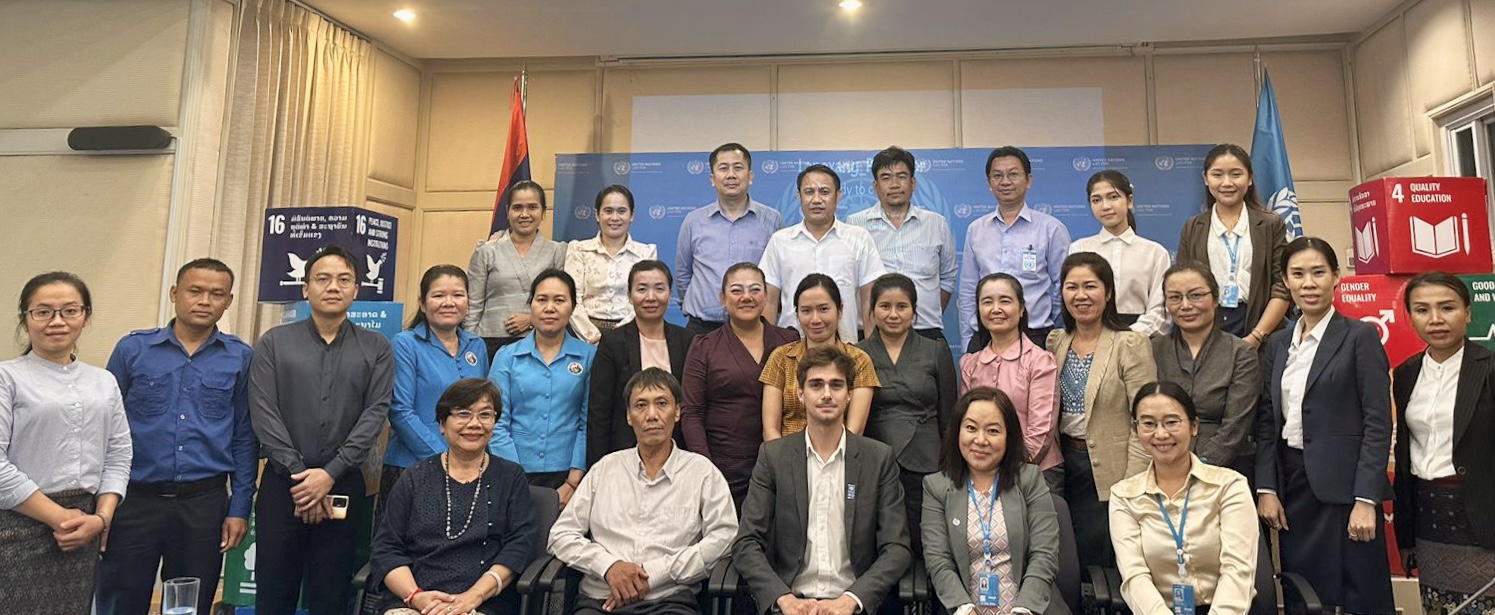Written by: Ms. Chindavone Sanlath, Project Coordinator of Climate Promise II Project, UNDP in Lao PDR
Lao PDR is taking gender actions forward in its Nationally Determined Contribution
September 19, 2023

Lao PDR is taking steps to mainstream gender into its Nationally Determined Contributions (NDC) under the Paris Agreement. To support this effort, the United Nations Development Programme (UNDP) is partnering with the Department of Climate Change (DCC), Ministry of Natural Resources and Environment (MONRE) of Lao PDR to identify gender gaps in climate strategies and to implement gender-sensitive climate actions. The Climate Promise II project, funded by Germany's Federal Ministry for the Environment, Nature Conservation, Nuclear Safety and Consumer Protection (BMU), is facilitating this collaboration and helping to achieve this important goal.
Between June and August of 2023, a gender consultant, Ms. Manivanh Pholsena conducted stakeholder consultations and developed a gender analysis to support the development of a gender action plan, gender strategies, and tool kits. By integrating gender actions into the NDC, Lao PDR can address the specific needs and priorities of all genders in the country's efforts to mitigate and adapt to climate change.
Climate change affects various genders differently. Therefore, integrating gender perspectives into climate policies and actions is critical for the effectiveness, efficiency, and sustainability of climate actions. This integration is not just a matter of justice and equality, but also a matter of the effectiveness of climate action.
By understanding and addressing the different vulnerabilities, capacities, and opportunities of women and men, Lao PDR can design and implement climate actions that are more targeted, relevant and sustainable. For instance, women in Lao PDR have a significant role in agriculture, which represents 60% of Lao women employment1 (ILOSTAT, 2021). Agriculture is also highly vulnerable to climate change in Lao PDR as is evidenced by the potential decrease of agricultural productivity between 5%-20% by the 2040s due to the potential increase of temperature. By integrating gender actions into the NDC, Lao PDR can develop climate-smart agriculture practices that are more suitable for women's roles and needs. Similarly, women are disproportionately affected by climate change due to their limited access to education, healthcare, and financial resources. By addressing these challenges, Lao PDR can promote gender equality and social inclusion while building resilience to climate change.
The gender analysis identifies the gender roles and responsibilities related to climate change, as well as the gender-specific barriers and opportunities for climate action. The analysis draws on the inputs of a diverse group of stakeholders, including government officials, civil society organizations, and academia in Lao PDR.
The integration of gender actions into NDC is not just a matter of climate change but also a matter of sustainable development and human rights. By addressing the gender-specific challenges and opportunities of climate change, Lao PDR can enhance its resilience and adaptive capacity, promote gender equality and social inclusion, and contribute to the achievement of Sustainable Development Goals.
-------------------
The views expressed in this article are those of the author alone and not the United Nations Development Programme.

 Locations
Locations



